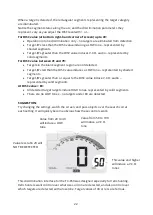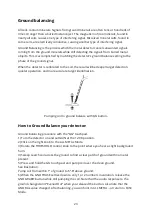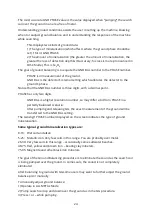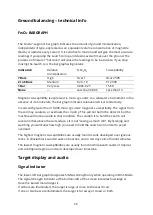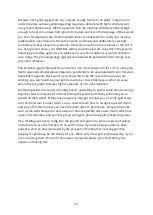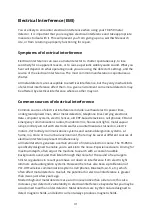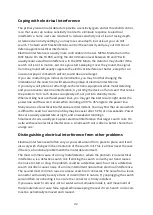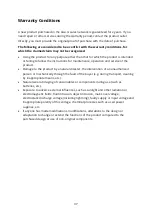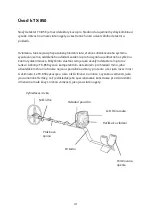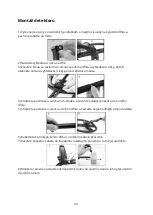
31
Electrical Interference (EMI)
You are likely to encounter electrical interference when using your TX-850 metal
detector. It is important that you recognize electrical interference and take appropriate
measures to deal with it. This will prevent you from giving up on a worthwhile search
site, or from returning a properly functioning for repair.
Symptoms of electrical interference
Electrical interference can cause a metal detector to chatter spontaneously, to lose
sensitivity for no apparent reason, or to cause a periodic wobbly audio sound. What you
hear will depend on what operating mode you are using, the detector’s settings, and the
source of the electrical interference. The most common manifestation is spontaneous
chatter.
All metal detectors are susceptible to electrical interference, but they vary in what kinds
of electrical interference affect them. In a given environment some metal detectors may
be affected by electrical interference where as other may not.
Common sources of electrical interference
Common sources of electrical interference include: overhead electric power lines,
underground power lines, other metal detectors, telephone lines carrying electronic
data, computer systems, electric fences, old CRT-based televisions, cell phones, CB and
emergency communications radios, thunderstorms, fluorescent lights, metal vapour
lamps, military aircraft with electronic warfare countermeasures turned on, electric
motors, VLF military communications systems and automobile ignition systems. At
home, in a store, or in an urban environment, there may be several different sources of
electrical interference present simultaneously.
All metal detectors generate a certain amount of internal electronic noise. The TX-850 is
specifically designed to enable you to work into the noise. Experienced users, striving for
maximum depth, often adjust the machine to search with a constant audible
background sound, and then listen through that noise for the sound of real targets.
Stricter regulations in recent years have cut down on interference from electric light
dimmers and audio ignition systems. However there has also been a proliferation of
VLF-UHF wireless communication systems (cell phones, Bluetooth, wi-fi, etc.), which
often affect metal detectors. Overall, the potential for electrical interference is greater
than it was just a few years ago.
Modern high-end metal detectors are a lot more sensitive than older units; this also
increases your detector’s vulnerability to electrical interference beyond what you may be
accustomed to with an older detector. Metal detectors are by their nature designed to
detect magnetic fields, and electric current always produces magnetic fields.






